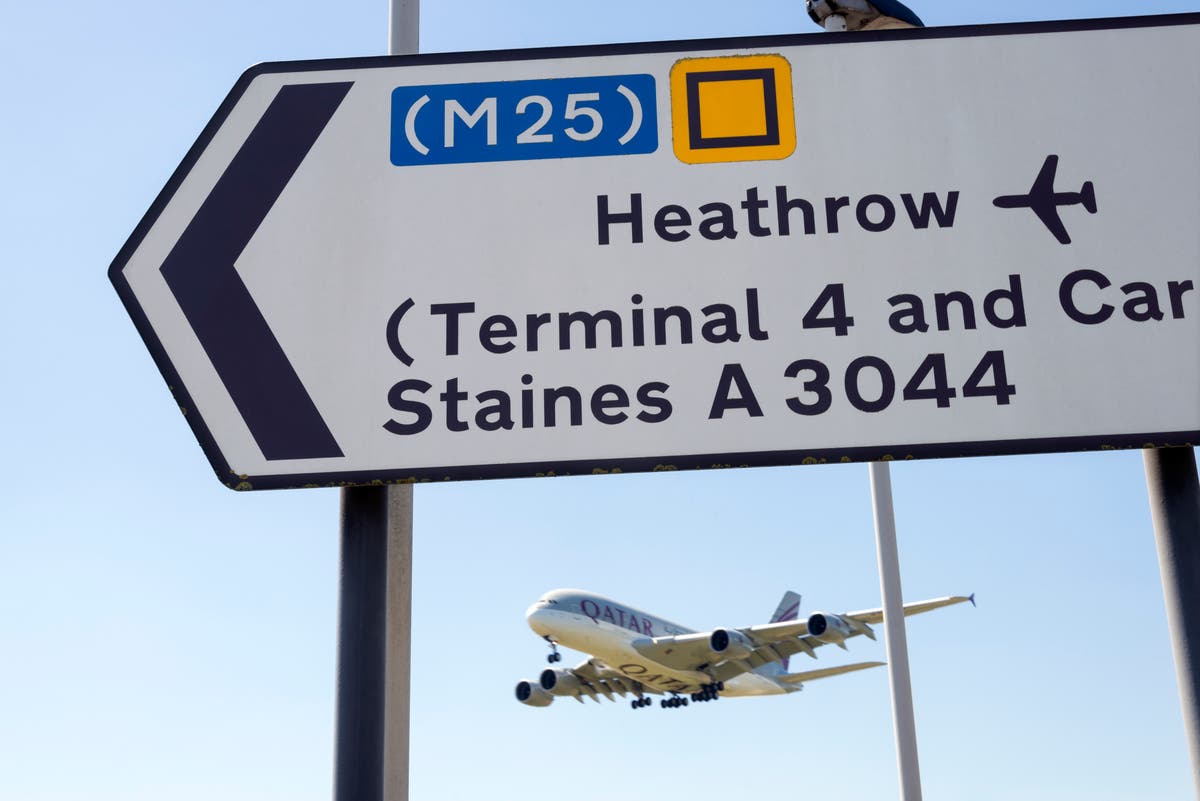Why has British Airways stopped selling short-haul flights from Heathrow?
On connecting routes such as Edinburgh to Rome, BA says there is nothing available in the next week

In an unprecedented move, British Airways has taken all short-haul flights from its main base, London Heathrow, off sale until 16 August at the earliest.
BA, which operates more than half the flights from London Heathrow airport, said: “We’ve decided to take responsible action”.
While intercontinental flights are still on offer, imminent domestic and European departures are blocked to new sales.
These are the key questions and answers.
Why has BA done this: has it simply run out of seats?
No. There are still empty seats on many of the airline’s Heathrow departures.
This decision, which will cost the airline a fortune in lost revenue, has been made for two reasons:
BA has already cancelled tens of thousands of Heathrow flights because it doesn’t have enough resources to operate them, but it appears that the cuts were not be enough to comply with the Heathrow cap.
Why is the Heathrow cap in place?
Three weeks ago the UK’s biggest airport said there were “some critical functions in the airport which are still significantly under resourced, in particular ground handlers”. These are the companies that airlines use to provide check-in staff, load and unload bags and manage the arrival and departures of aircraft.
Earlier in the summer, says Heathrow, when departing passenger numbers regularly exceeded 100,000 a day, there were unacceptable “queue times, delays for passengers requiring assistance, bags not travelling with passengers or arriving late, low punctuality and last-minute cancellations”.
Cut the number of departing passengers, believes the Heathrow management, and you reduce the risk of everything unravelling. So a limit of 100,000 has been imposed between now and 11 September.
A spokesperson for Heathrow said: “Acting in the best interests of passengers, we introduced a cap on departing numbers at Heathrow in order to provide better, more reliable journeys this summer.
“We are pleased to see action from British Airways, acting responsibly and also putting the passenger first.”
Don’t airlines usually make hay while the sun shines?
They certainly do. Carriers have accumulated huge debts during the Covid-19 pandemic. They are desperate to pay it down, and the summer of 2022 should provide that opportunity.
At times of high demand – and this summer is extreme in terms of people wanting to fly – airlines can make prodigious profits from selling the last few seats shortly before departure. The last seats on this morning’s Ryanair flight from Manchester to Alicante sold at £336 one-way, for example, compared with just £27 three months from now for the identical 1,050-mile flight.
For a leading global airline like British Airways to decide to stop selling tickets from its main base to UK regional airports and Continental Europe in what should be the most lucrative month of the year is unprecedented.
How does the BA move affect travellers from other parts of the UK?
It significantly reduces choice. For example, from Glasgow to London on Tuesday 2 August there are plenty of options: seven flights to London Heathrow with fares starting at £117. But heading back north, you can choose only between two flights: Gatwick at £504 or London City at £266.
On connecting routes such as Edinburgh to Rome there is simply nothing available in the next week, while passengers seeking flights from Belfast City to Faro are being told to transfer from arrival at Heathrow to departure from Gatwick.
Define ‘short-haul’ flights?
The vast majority are under four hours’ flying time, including all UK domestic links.
The longest BA short-haul flight is from Heathrow to Larnaca in Cyprus – a distance of 2,040 miles with a flying time of 4h 45m.
The shortest BA long-haul flight is from Heathrow to Cairo – 150 miles further, and scheduled to take 15 minutes longer.
Are existing BA bookings affected?
No, although in a bid to ease the pressure of numbers the airline is offering flexibility to anyone booked on a short-haul flight between now and 7 August.
“You can rebook onto a British Airways-operated service free of charge to any date within the next 12 months of your original date of travel, subject to availability.
“Alternatively you can request a voucher for the value of your booking and, when you are ready to use your voucher to book new flights, you can do so online.”
The voucher is valid for travel up to 30 September 2023.
How long is this BA policy likely to continue?
I asked the airline when seats from Heathrow might go on sale again, but the airline did not say. In a statement, British Airways said: “As a result of Heathrow’s request to limit new bookings, we’ve decided to take responsible action and limit the available fares on some Heathrow services to help maximise rebooking options for existing customers, given the restrictions imposed on us and the ongoing challenges facing the entire aviation industry.”
Rob Burgess, editor of the frequent flyer website Head for Points, said: “I is very possible that we will see ticket sales restricted for the rest of the summer – at least until we get past the August bank holiday weekend.
“Anyone who needs to travel from Heathrow during August on a British Airways service and who hasn’t yet booked a ticket should considering booking as soon as possible in case booking is closed for additional dates.”
Are other airlines doing similar things?
The responses to the Heathrow cap has varied from one airline to another. Some have cancelled flights and shifted passengers to other flights where possible. Any traveller whose flight is grounded has the right to be flown to their destination on the original day on any carrier that has space.
Other airlines have curtailed access to Heathrow flights for staff travelling on reduced-rate tickets.
And some are simply taking off with significant numbers of empty seats.
Is this likely to become a regular summer sight?
No. Airlines are furious about having their earning potential constrained. John Grant of the schedule analyst OAG predicts around 20,000 seats from Heathrow could go unsold each day.
He said: “In total London Heathrow are seeking a reduction in passengers of around 1,375,000 handled at the airport through to September and that is a lot of lost revenue.”
Mr Grant puts the cost at perhaps half a billion pounds.
Heathrow, which also loses out financially with every “missing” passenger, will be addressing all the areas of overstretch ahead of the next peak spell, Christmas and the New Year.
As The Independent has speculated, the cap on passenger numbers at Heathrow may persuade some airlines to add departures from other UK airports.

 Tekef
Tekef 































